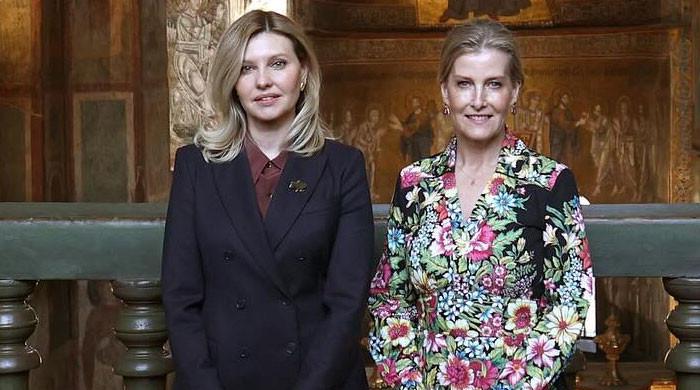Chinese online fast fashion retailer Shein, known globally for its affordable clothing, has become the target of a boycott.
As Muslims around the world celebrate Eid al-Fitr, the end of Ramadan, Chicago-based human rights group Justice for All is calling on Muslim women to boycott Shein, claiming the group is complicit in China’s forced labor of Uyghur Muslims.
The rights group said on social media platform X last week:
A jilbab is a full-length, loose-fitting, head-to-toe garment worn by some Muslim women that also covers their hands.
Arslan Hidayat, director of the Save Uyghurs movement, said Xie’s alleged use of forced labor exacerbated the oppression of the Uyghurs.
“It is critical for Muslims to use their consumer power to protest the use of forced labor and show solidarity with the Uyghur community,” Hidayat told VOA. “We have a responsibility to prioritize ethical consumption practices, and seek justice for the Uyghur people.”
Beijing denies any forced labor in Xinjiang.
A Shein spokesperson said the retailer has a zero-tolerance policy against forced labor.
“We take transparency throughout our supply chain seriously and are committed to respecting human rights. To comply with U.S. law, we require our contract manufacturers to source cotton only from approved regions,” a company spokesperson said in an email response told VOA.
Concerns about Shein’s sourcing practices also extend to its use of Xinjiang cotton. Laboratory tests conducted by Bloomberg in November 2022 showed that Shein’s clothes contained fibers from Xinjiang cotton, which is banned in the United States under the Uyghur Forced Labor Prevention Act enacted in June 2022.
The law bans imports from Xinjiang and goods allegedly made by Uighurs who are forced to work for minimum wage jobs, unless companies can prove there is no forced labor.
Although the U.S. bans imports from Xinjiang, Shein’s shipments often evade scrutiny through de minimis rules, which exempt packages under $800 from customs inspections, allowing them to enter the U.S. without thorough inspection.
Bipartisan leaders of a congressional committee focused on the Chinese Communist Party call on the Biden administration to step up efforts to crack down on imports linked to forced labor in China, urging closures trade loopholes Used by e-commerce giants like Shein and Temu.
Yarkun Uluyol, a research consultant in Istanbul who studies forced labor practices in China, said the United States needs a more comprehensive entity list and more sanctions.
“U.S. Customs and Border Protection has placed companies on the Entity List, barring imports into the U.S. market. However, we need a more inclusive list of companies that have documented evidence of forced labor,” Uluyol told Us sound.
Uruyol said that the measures taken by the Chinese government in Xinjiang are nominally aimed at alleviating poverty, but are actually forced labor. He said that under China’s “new counterintelligence regulations, one cannot even request supplier information from a company based in China.”
“Coupled with online censorship and a lack of transparency, it is a challenge to obtain adequate information about the supply chain, let alone the complicity of forced labor companies,” Uluyol said.
Hidayat noted that even though Ramadan is a month of sacrifice and spiritual reflection, many Muslims purchase prayer attire from Shein during this time.
“Shein is a popular clothing brand founded in China targeting North American consumers. Especially among the Muslim community, they are stable customers because the hijabs, abayas and jirbabs are cheap,” Hidayat said.
Shein has been promoting its products through social media influencers, including Muslims.
During the fasting month of Ramadan, which ended on Wednesday in most countries, some Muslim YouTubers showcased Shein’s selection of Islamic clothing in collaboration with the brand.
VOA contacted a number of people for their thoughts on the Justice for All boycott of Shein, but they did not respond.
Founded in 2012 and backed by California’s Sequoia Capital and China’s IDG Capital, Shein has grown into a fast fashion giant targeting Generation Z consumers outside China.
In 2019, the company headquarters relocated From Mainland China to Singapore Its business covers more than 150 countries and regions.
this Financial Times It was reported in March that Shein’s total sales reached US$45 billion last year, and profits in 2023 will nearly triple compared with 2022, reaching More than $2 billion. The closest competitors, H&M and Zara, earned $820 million and $580 million respectively.
Follow us on Google news ,Twitter , and Join Whatsapp Group of thelocalreport.in

















